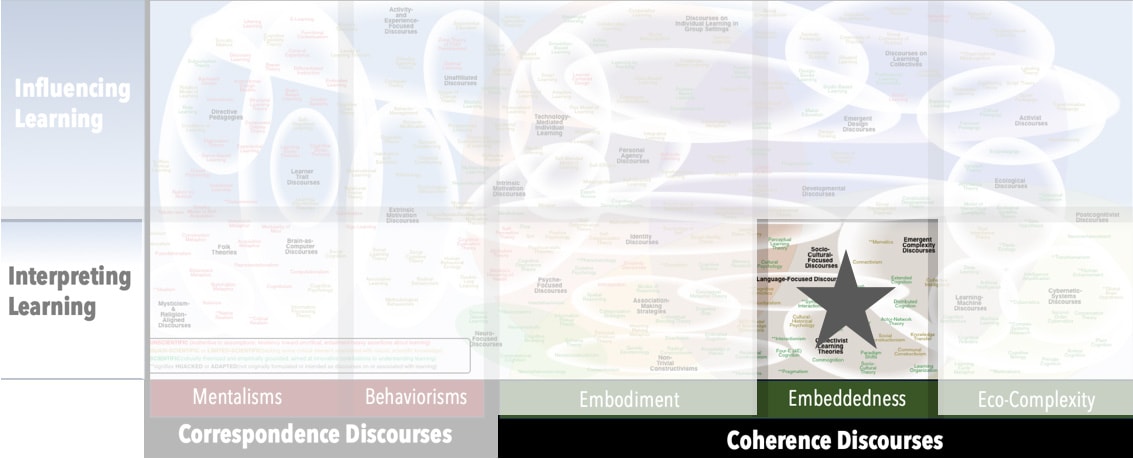AKA
Collective Learning
Focus
Interpreting the simultaneous transformations of individual and collective knowledgePrincipal Metaphors
- Knowledge is … actions and interpretations that have been collectively developed and sanctioned
- Knowing is … situationally appropriate actions and interpretations
- Learner is … evolving individual and/or collective entity
- Learning is … transformation
- Teaching is … engaging; designing
Originated
1920sSynopsis
Collectivist Learning Theories are concerned with emergence and maintenance of both individual knowing and collective knowledge, recognizing these dynamic phenomena to be inextricably intertwined and continuously co-emergent. In general, collectively constituted knowledge is seen to frame individual interpretive possibilities – in effect, formatting possible worlds through specifying what is knowable, doable, and be-able. Because discourses in this cluster are concerned simultaneously with individuality and collectivity, they tend to share the following constructs (albeit with differentiated emphases):- Individualism – an attitude that emphasizes (and, in more extreme versions, privileges) the individual’s rights, choices, beliefs, and relationships
- Collectivism – perceiving of the individual as not just a member of a larger group, but as an integral element of a larger whole
- Collective Entity – broadly speaking, a phenomenon that can be simultaneously perceived as a both group of independent agents (i.e., a “collection”) and a unified whole that is oriented or motivated by a common interest (i.e., a “collective”)
Commentary
Collectivist Learning Theories were around for many decades before they began to have a significant impact on educational discourse. Somewhat ironically, the theories themselves provide an explanation for the slow uptake: Concisely, prevailing conceptions of knowledge prior to the mid-1900s tended to lean in the direction of external, knower-independent truths, and that conception helped to sustain educational systems founded and focused on that notion of knowledge. Arguably, that sensibility continues to prevail, but it is increasingly tempered by the realization that it’s impossible (and silly) to dissociate knowledge from knower, self from other, and individual from collective.Subdiscourses:
- Individualism
- Collectivism
- Collective Entity
Map Location

Please cite this article as:
Davis, B., & Francis, K. (2024). “Collectivist Learning Theories” in Discourses on Learning in Education. https://learningdiscourses.com.
⇦ Back to Map
⇦ Back to List
